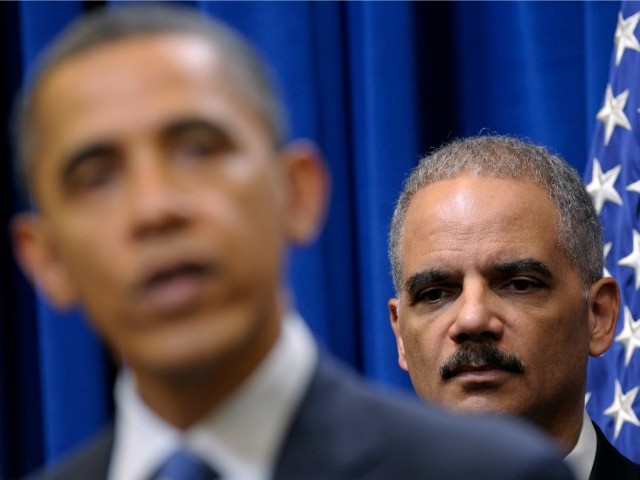
On July 18, U.S. District Judge John D. Bates said, “Time’s up!” and has ordered the Department of Justice (DOJ) to turn over to the court information on all documents for which President Barack Obama is claiming executive privilege in the Operation Fast and Furious scandal.
Fast and Furious was the name of a gun-running scheme operated by DOJ, supposedly to trace American guns illegally trafficked to Mexican drug cartels. DOJ lost track of at least 1,300 of those firearms, many of which have since been recovered at crime scenes. U.S. Border Patrol Agent Brian Terry was murdered with one of those firearms.
Attorney General Eric Holder told Congress that DOJ never lost track of any firearms and later had to retract that false statement. Obama claimed executive privilege regarding any connected documents and ordered Holder not to turn over the documents investigators sought. These lawsuits are in part an attempt to discover why Holder misled Congress and the public.
There are two lawsuits challenging Obama’s claim of executive privilege. The other was filed by Rep. Darrell Issa (R-CA) after the U.S. House voted to authorize the suit, in Committee on Oversight & Gov’t Reform v. Holder. Breitbart News reported on the oral arguments on that case on May 15, 2014, before Judge Amy Jackson Berman. No word yet from that judge.
This case, Judicial Watch v. Dep’t of Justice, was brought by the conservative watchdog group against Holder’s DOJ, demanding the same documents. Bates originally allowed a 16-month stay on disclosure. Now he has ordered DOJ to turn over a “Vaughn index,” which is an itemized listing of all the documents they have that they are trying to withhold. While the index does not give the contents of these documents, a great deal can be learned from what those documents are and why the White House asserts it can keep each one from Judicial Watch, Congress, and the American public.
As this author explains in his article “Making Executive Privilege Work,” published by Cleveland State Law Review, Obama is asserting a form of executive privilege called the “deliberative process privilege,” which the lower courts in Washington, D.C., recognize but which the Supreme Court has never had an opportunity to consider.
This form of executive privilege is when the president is not personally involved in any of the documents or conversations the administration seeks to keep secret. It is very weak under circumstances such as these, in a situation involving domestic law enforcement in a government agency with no White House role and in which crimes were committed.
DOJ is likely to appeal this ruling immediately to the U.S. Court of Appeals for the D.C. Circuit.
Ken Klukowski is senior legal analyst for Breitbart News. Follow him on Twitter @kenklukowski.

COMMENTS
Please let us know if you're having issues with commenting.